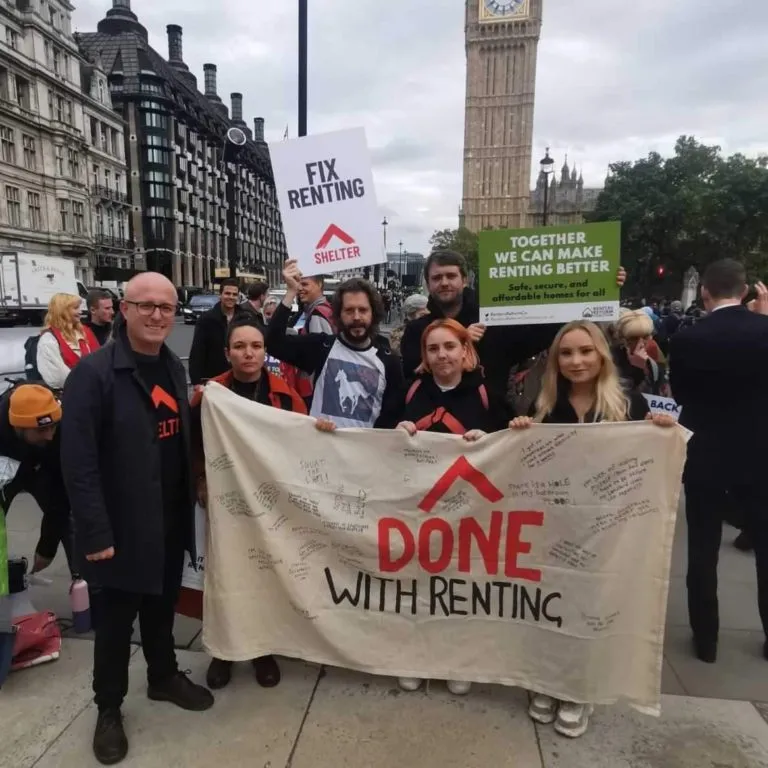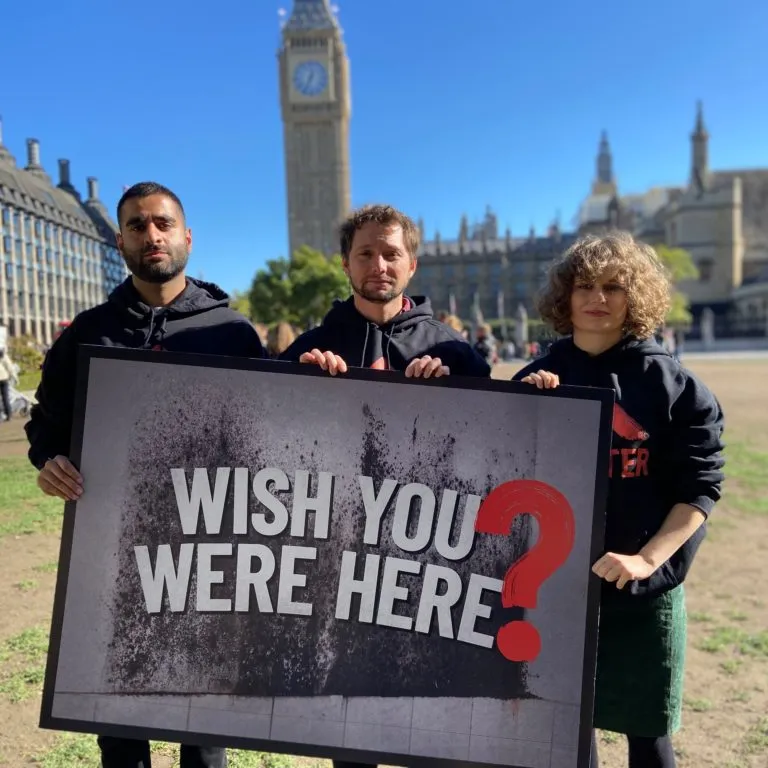On World Homeless Day, what can we do to end homelessness?
Published: by Deborah Garvie

Today is World Homeless Day: a day when people on every continent are asked to educate themselves about homelessness and work together to bring it to an end.
In England, homelessness has now been such a visible feature of society for so many decades, that it’s understandable for some people to assume that it’s ‘just one of those things: an inevitability. Very sad, but what can we do?’
So, let’s get a couple of things straight:
- homelessness is not inevitable. It’s a political choice.
- homelessness is not a complex problem to solve. It’s very easy.
The answer to homelessness is a home
Having fought to end homelessness for most of my working life, I’m often puzzled that people describe homelessness as complex and difficult. They’re unlikely to have the same view of hunger: most people get that the answer to hunger is access to food.
The way to end homelessness is to make sure everyone has access to a home.
And of course, if we’re to make sure people have access to a home, we need a functioning housing system. Instead, we’ve been in a state of housing emergency for over a decade and consecutive governments have been kicking the can of our housing system down the road for even longer.
We’re now heading for catastrophe.
It’s difficult to say how many people are homeless in England right now
This is because the government’s statutory homelessness statistics are lagging woefully behind. The most recent is for 31 March, only a month after we came out of Covid restrictions.
It was bad enough that there were:
- 59,000 homeless families, including 120,000 homeless children
- 36,000 homeless men and women
And these are just the homeless people accommodated (because they have statutory rights) by local housing departments in ‘temporary accommodation.’ Thousands more homeless adults and children are accommodated by other arms of the state, such as social services departments. ‘Temporary accommodation’ for homeless people is often anything but. In reality, it can mean months and even years of living in limbo in various homeless hostels: this is not a home.
Thousands more people have no statutory rights to accommodation. This is because of their immigration status or they’ve been categorised as ‘intentionally homeless’ (a dreadfully Orwellian term) or because they aren’t defined as having a ‘priority need’.
This is why you see homeless people on the streets.
2,440 people were sleeping rough in England in the last count. But these statistics are outdated because they relate to autumn 2021.
But what we know is we’re facing a tidal wave of homelessness
Our local services have warned us for months that things are now much worse. Thousands of people were already struggling to keep or find an affordable home long before the cost of living crisis hit the headlines. Now, huge increases in inflation are pushing them over the edge.
Unless very urgent action is taken right now, we’re expecting an explosion in homelessness over this autumn and winter.
So, what can we do to end homelessness?

The number one thing you can do to end homelessness is to make sure it’s a political priority.
It should be. What greater human indignity is there than having to curl up on a pavement as people walk past their homes? What greater blow to the innocence of childhood, than your family being moved from one homeless hostel to the next?
Today, we’re demanding that tackling homelessness is at the top of the prime minister’s agenda.
Over the summer, thousands of you sent messages to remind Liz Truss about her government’s mandate and the promises that got the government its majority.
Today, we’re handing them in directly to Number 10. We’re calling on the prime minister to stick to manifesto pledges to:
- end rough sleeping by 2024, by preventing growing homelessness
- level up our country by investing in desperately needed social housing
- make good on promises made to Grenfell United via the Social Housing (Regulation) Bill
- give renters the rights and security they need by introducing the Renters’ Reform Bill
Please join us in our fight to end homelessness for good by:
- campaigning to help end the housing emergency
- donating so that people have a safe place to call home